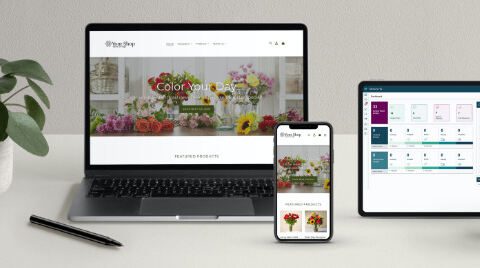This is Part 2 of the Retail TouchPoints SMB report. Part 1 of the report appeared in the Nov. 26th newsletter.
CRM, personalized email strategies and financial management tools are among the smart IT investments SMB retailers are making to succeed in the competitive retail market.
At Moose Country Gear, an SMB wholesale retailer of outdoor gear, a CRM solution helps build more personalized shopping experiences and closer client relationships. A web-based contact management tool centralizes business and personal customer information, including email history, current projects, past purchases, family makeup, background, milestones and more.
The CRM tool, from Insightly, a provider focused on the SMB space, “helps us build trustful and intimate relationships so that when customers call, they’re talking to more than just a name on the other end of the phone,” said Mark Infanger, President of Moose Country Gear, in an interview with Retail TouchPoints. “Customers want to trust and form close associations with retailers, so we have to focus on personalizing our service and building relationships, especially to survive the big box invasion. SMB retailers don’t have the dollars to compete in any other way. As nice and ‘touchy-feely’ as CRM sounds, its capabilities really translate to more money on the bottom line. The benefit gained simply is this: Moose Country Gear can make more money.”
Since implementing the CRM tool, Moose Country Gear has increased sales by 150%, Infanger reported. “Not all retailers are capable of building relationships like that, and Moose Country gear couldn’t do it without tracking customer details with CRM.”
Email Customization Drives SMB Sales
Personalization also helps drive sales for SMB retailers that leverage customer data within their email strategies.
SmartFurniture.com is an online-only furniture company with only 35 employees and revenues of just under $20 million. The SMB leverages a series of personalized emails to connect with customers throughout their unique browsing and buying journeys. As previously reported by Retail TouchPoints, targeted email campaigns help this furniture design company acquire customers and drive incremental sales. The targeted email initiatives include a cart abandonment program, welcome series, post-purchase emails and a loyalty campaign.
“The ability to create meaningful segments then automate email programs that target those segments helps lessen internal overhead, which helps us in our efforts to compete against larger retailers,” said T.J. Gentle, CEO of SmartFurniture.com. “Personalized recommendations and content make shopping with us easy and efficient. By really focusing on our customers’ needs and expectations, we can do a better job solving their problems and getting them what they need.”
SmartFurniture.com partnered with Listrak, an email service provider, to implement the customized campaigns. “As of October 2013, email marketing has accounted for an average of 13.44% of overall monthly revenue,” Gentle reported, “up from 8% in June 2013.”
The SMB retailer’s latest post-purchase campaigns focus on gathering Nielsen demographic data for customers then segmenting it into profile groups. Within those profiles, the company identifies purchase trends within customer groups. New customers are divided into these profiles then sent targeted post-purchase emails that suggest items popular within their segments. “Conversion rates for this campaign are 2.99%,” Gentle said, “which is a big jump overall, but there is still plenty of room for growth, optimization, and automation. The increased insights provided by Nielsen customer segments allow us to target like-minded customers with a curated selection of recommendations, in addition to rewarding them for shopping again with us. As a result, we can drive more engagement back to the site as well as increase future conversions.”
Financial Tools Help Day’s Jewelers Shine
Personalized customer service is a core commitment at Day’s Jewelers, an online and six-store retailer founded in 1914. Today the SMB combines time-honored jewelry skills with modern technology without sacrificing the personal customer service that has helped the merchant succeed for 90 years, despite large-scale competition.
To facilitate the addition of new stores, grow the online presence, and expand and adapt merchandise to customer tastes, the boutique retailer implemented a financial management solution from Centage Corporation. The Budget Maestro tool “provides more accurate forecasting and long-term planning, as well as a mile-high perspective built on down-in the-weeds detail,” said Mark Ford, former CFO of Day’s Jewelers. “We get a macro view of all the things we want to do, based on budgets created at the department level.”
Every Day’s Jeweler location is run as a self-contained business. Each store manager is responsible for forecasting product revenue by category, headcount planning, payroll and benefits expenses, costs centers and service departments. The Budget Maestro technology helps store managers address financial tasks and accountability, without taking time from personal, face-to-face customer interactions. The tool manages everything from inventory on a 120-day sales cycle to building a three-year growth plan based on current numbers and future projections.
Day’s Jewelers executives can measure profitability by store, product line and department, and analyze in detail which teams are delivering results and which aren’t, and which expense reduction programs are most efficient. In addition, executives can test different scenarios to identify the best growth strategies and invest resources more effectively. The ultimate goal is to expand the business while concentrating on more customer-facing values ― such as spending time building on a 90-year reputation for expertise and personalized service.
A Better Understanding Of Business Essentials
Financial tools such as Budget Maestro can help SMB retailers vie against larger competitors that can afford expansive business talent. A recent survey by Staples of 500 U.S. small business owners found that only 45% of respondents could define basic accounting principles such as “accounts receivable” and “accounts payable.” Another 23% admitted to bouncing a check in the past year, and 40% said they wish they had known more about management before starting their business.
“A firm understanding of finances and business performance is crucial for a small business to be successful,” said Steve Strauss, senior small business columnist for USA Today and President of TheSelfEmployed.com. “Managing finances is a challenging process and many business owners are often unaware of the tools and resources available that can help them make smart decisions and, ultimately, improve their bottom line.”
SMB retailers that invest in financial, CRM, mobile payment, web site optimization and other IT tools will be best positioned to face stiff retail competition.
Click here to access a complimentary pdf of the complete two-part SMB report.












